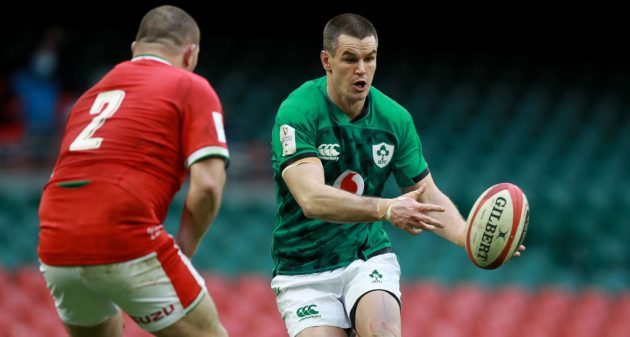Why science, engineering and business must unite to protect our athletes and the sports we love

The stadiums were echoing, the stands empty, but when normal life ground to a halt, many professional sportsmen and women played on.
The spectacle gave the rest of us a dose of much-needed escapism. Watching from our locked-down homes, it was easy to imagine the athletes on-screen didn’t have a care in the world beyond the results at the end of their games.
All of them, though, run a risk we couldn’t see, and that we rarely consider. Not defeat, or even a sudden injury, but a possibility that could upend their lives for good: early-onset dementia.
In recent years we have begun to hear the stories of the hardes-hit former players. They live with the impact of sports-related concussion on the brain long after their careers are over.
Speak to these ex-players with dementia, understand their experiences, and the injuries we see so often in elite sport today are even more worrying.
Earlier this month, Ireland’s Johnny Sexton was forced off the field in the Six Nations match against Wales due to a head injury.
In the Premier League, Wolves striker Raul Jimenez is still sidelined following a severe clash of heads with David Luiz in their game against Arsenal in November.
If anything, the increased levels of physicality required to compete at the highest level across all high-impact sports means players are more at risk now than ever before.
Early-onset dementia
Some measures have come into force to address the issue. Concussion substitutions and protocols are now firmly embedded in top-flight rugby.
Earlier this month West Ham’s Issa Diop become the first player in English football to be substituted under new concussion substitute guidelines set out by the Football Association.
Is it enough? Some aren’t convinced. The FA’s protocol has been criticised by the brain injury charity Headway.
They point to the fact that Diop was allowed to continue playing for seven minutes before being substituted – long enough, Headway say, for the injury to his brain to be severely exacerbated.
There is still a long way to go to protect our players and the games we love.
With a growing body of evidence showing the correlation between blows to the head and the likelihood of developing early-onset dementia, we know too much to simply debate this issue. It must be dealt with.

To date, much of the discussion has centred on dramatic rule changes, attempts to ban bouncers in cricket or headers in football, moves which risk changing our games beyond recognition.
For many they are the wrong solution. We must prioritise player safety without compromising the integrity of the games we love. The two aims should not be mutually exclusive.
With the advances in sports science and our understanding of neurology and the causes of dementia, stakeholders from sport, academia and technology should be brought together to develop reasonable methods of assessing risk, and diagnosing, preventing and treating long-term damage.
In the modern game, every other part of an athlete’s physical condition is monitored and tracked by sports scientists. The health of brains should be no different.
Solutions-based approach
I am heartened by early efforts to unite stakeholders around this issue.
Earlier this month, representatives from sport, including rugby, football, cricket and boxing, and campaigning came together for a roundtable with Culture Secretary Oliver Dowden and Sports Minister Nigel Huddleston to seek a way forward. We are due to meet again tomorrow, 25 February, to continue discussions further.
At the same time, the best minds in science, engineering and business are being brought together by campaign groups like Love of the Game, to promote a solutions-based approach and ensure funding for the development of implementable technologies that can prevent, diagnose and treat head injuries in sport.
This pandemic has shown us how, if a crisis is big enough, solutions to medical challenges can be developed quicker than anyone knew was possible.
The issue of concussion in sport has long been ignored.
But with a groundswell of support from across the sporting and medical worlds, now is the time to develop long-term solutions which will not only protect our individual athletes but the games we love for future generations.
Laurence Geller CBE is chairman of Love of the Game and Loveday & Co.